Building an EV charging station in Vietnam requires adherence to specific legal procedures encompassing essential documents like land use rights certification, construction permits, business licenses, and safety certifications.
Land Use Rights Certificate Process for Charging Stations
The Land Use Rights Certificate is crucial for constructing an EV charging station. This document verifies ownership or leasing rights at the intended location. Ensure your application comprises all lawful details according to the regulations.
Acquiring the Land Use Rights Certificate is a fundamental step toward legally and efficiently setting up an EV charging station. Follow this detailed process:
- Prepare Required Documentation
- Initially, gather pertinent documents affirming land use rights or ownership/lease rights at the proposed site. This forms the legal basis for infrastructure development.
- Subsequently, prepare a technical construction dossier with detailed blueprints required for the construction permit.
- Collect comprehensive documents on electrical safety, fire safety, and electricity supply contracts from the local utility company.
- Land Use Rights Certificate Application
- Prepare a legitimate application including land documents, a detailed construction plan, and necessary commitments.
- Submit the application at the land registration office within the Department of Natural Resources and Environment or at the district-level People’s Committee.
- Officials will inspect and verify land status and usage planning compliance with current regulations (Decree 35/2023/ND-CP).
- Since EV charging stations are not exempt from construction permits, obtain both in parallel.
- Compliance Requirements
- Use of land must align with approved planning and current usage purposes, ensuring no legal violations in land and building regulations.
- Adhere to fire safety standards, electrical standards, and grid connection to mitigate operational risks at the charging station.
- Process Summary
- Comprehensively prepare legal documentation concerning land rights and construction dossiers.
- Submit the Land Use Rights Certificate application to the appropriate authority.
- Procure a construction permit alongside the Land Use Rights Certificate application.
- Fulfill safety certification requirements for electrical and fire prevention.
- Establish an electricity supply contract with the power company prior to construction and operation of the approved charging station.
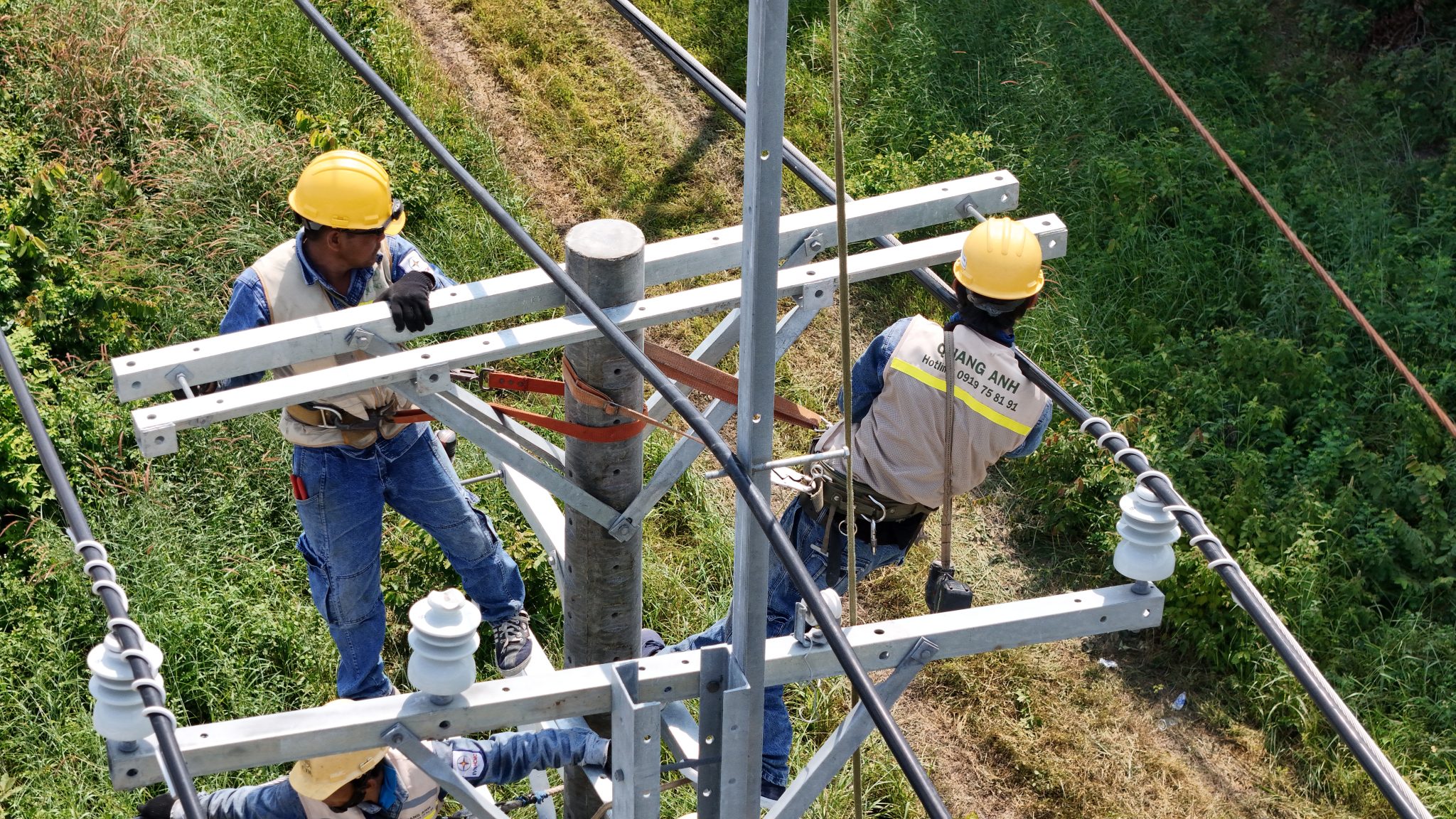
Construction Permit Procedures for EV Charging Stations
A construction permit is mandatory for establishing an EV charging station. The application requires detailed project blueprints, land use rights certificates, and related planning documents. Adhering to current laws is crucial for the project’s legality.
Obtaining a construction permit for an EV charging station involves a complex legal process requiring strict adherence to Building Law 2014 and its amendments in Law No. 62/2020. As per Clause 2, Article 89 of this law, such construction projects do not qualify for permit exemptions. Therefore, investors must follow these steps to ensure a smooth procedure:
- Prepare Permit Application: The application must include a thorough request form, technical station designs, and proof of land use rights. Attach all related planning documents as well.
- Adhere to Technical and Safety Standards: The station must meet safety and technical standards, including fire safety guidelines outlined by the Ministry of Construction in recent directives and decisions.
- Verify Planning and Land Use Goals: This unavoidable step ensures that the project complies with local infrastructure development plans and rules under Decree 35/2023/ND-CP.
- Submit Application to Relevant Authorities: Depending on the location, submit the application at the Project Management Board, Urban Management Office, or district/municipal People’s Committee to obtain approval.
- Await Evaluation and Permit Issuance: The evaluation and permit issuance proceed according to legal timeframes.
The Ministry of Construction has inaugurated Decision 766/QD-BXD on July 24, 2023, to elucidate Decision 876/QD-TTg, outlining the standards for charging infrastructure and fire safety requirements. Guidance for construction permit conditions is also detailed in Document 4338/BXD-HDXD (2023) under Building Law and Decree 35/2023/ND-CP.
Diligently following these steps will certify the project’s legality and safety as an EV charging station.
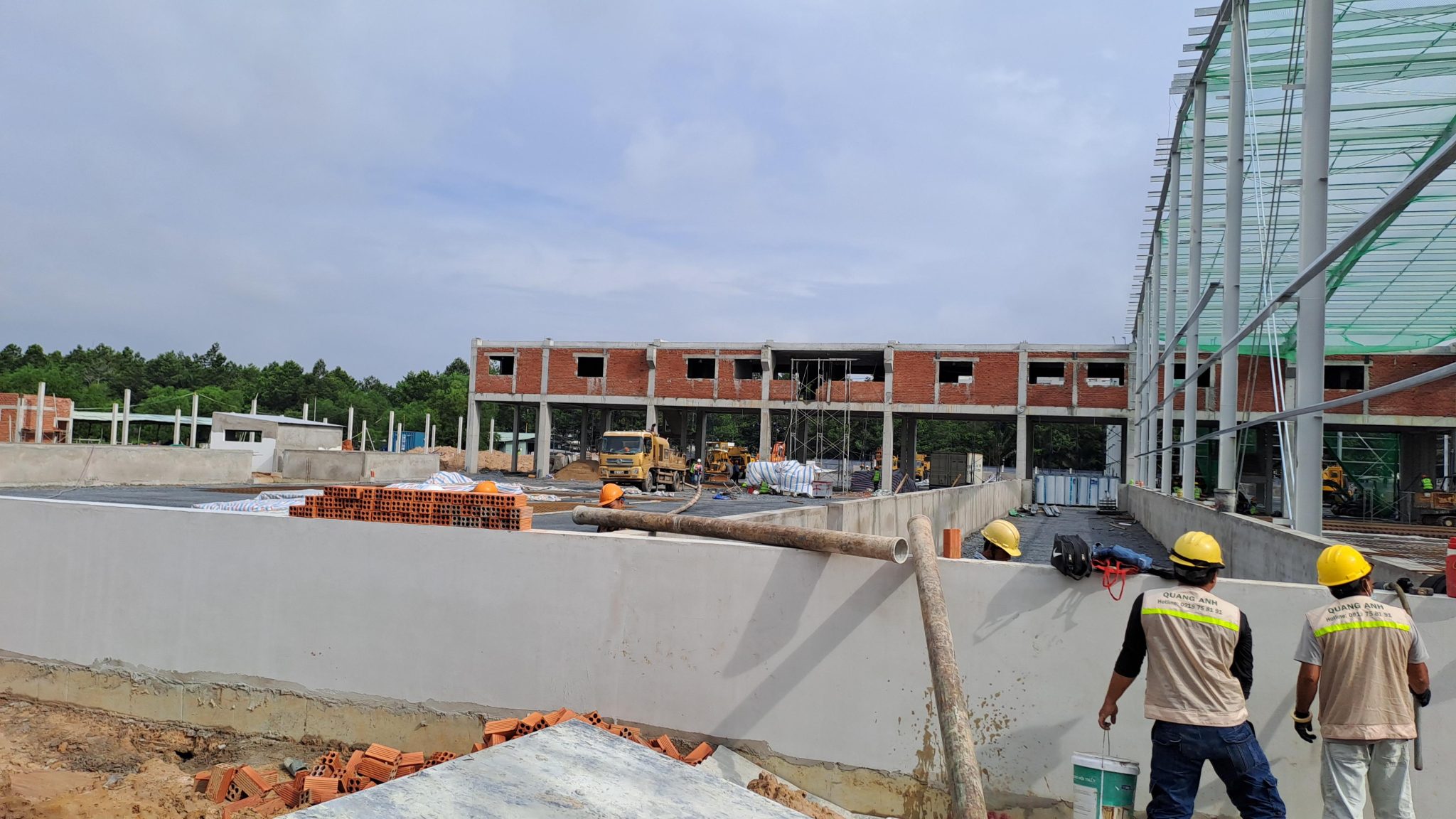
Electric Business Permit and Supply Contract
A business license is vital for commercial operations, complemented by an electricity supply contract with the power company to ensure a steady power source for the station, meeting technical requirements for capacity and safety.
Legitimate and effective engagement in Vietnam’s power sector mandates obtaining an electric business license. This license, issued by the authorized government body, certifies organizations or individuals to operate legally in electric industry sectors including electricity generation, wholesale, retail, and grid management. Besides ensuring lawful operations, the electric business license guarantees stable power supply and operation.
An electric business license requires the organization to be legally established as per Vietnamese law, such as a company, cooperative, or other legal establishments. Additionally, it needs a specific business plan relevant to the electric sector, like power generation, wholesale, or retail. The organization’s staff should possess a university degree or higher, with at least five years of experience in their field, to adequately manage technical and maintenance duties.
Furthermore, electric regulations demand organizations comply strictly with safety standards and environmental protection guidelines. Certain exceptions such as self-consumed generation, small-capacity generation (below 1 MW), or operations in rural, mountainous, or island areas may not require a license.
The electric approval process mandates online application submissions to the Ministry of Industry and Trade’s public service portal at least 15 business days before the proposed operation. Authorization agencies will assess and grant the license within 15 business days upon receiving a complete application.
Additionally, a power supply contract is essential for electric business processes. Such contracts, forming a legal agreement between electricity sellers and buyers, delineate rights and obligations. Primarily, contracts cover the scope and purpose of power supply, contract duration, pricing and payment mechanisms, and responsibilities regarding electrical safety and equipment maintenance. Provisions for incident management and potential damages are explicitly covered, adhering to the Electric Law and Ministry of Industry and Trade regulations.
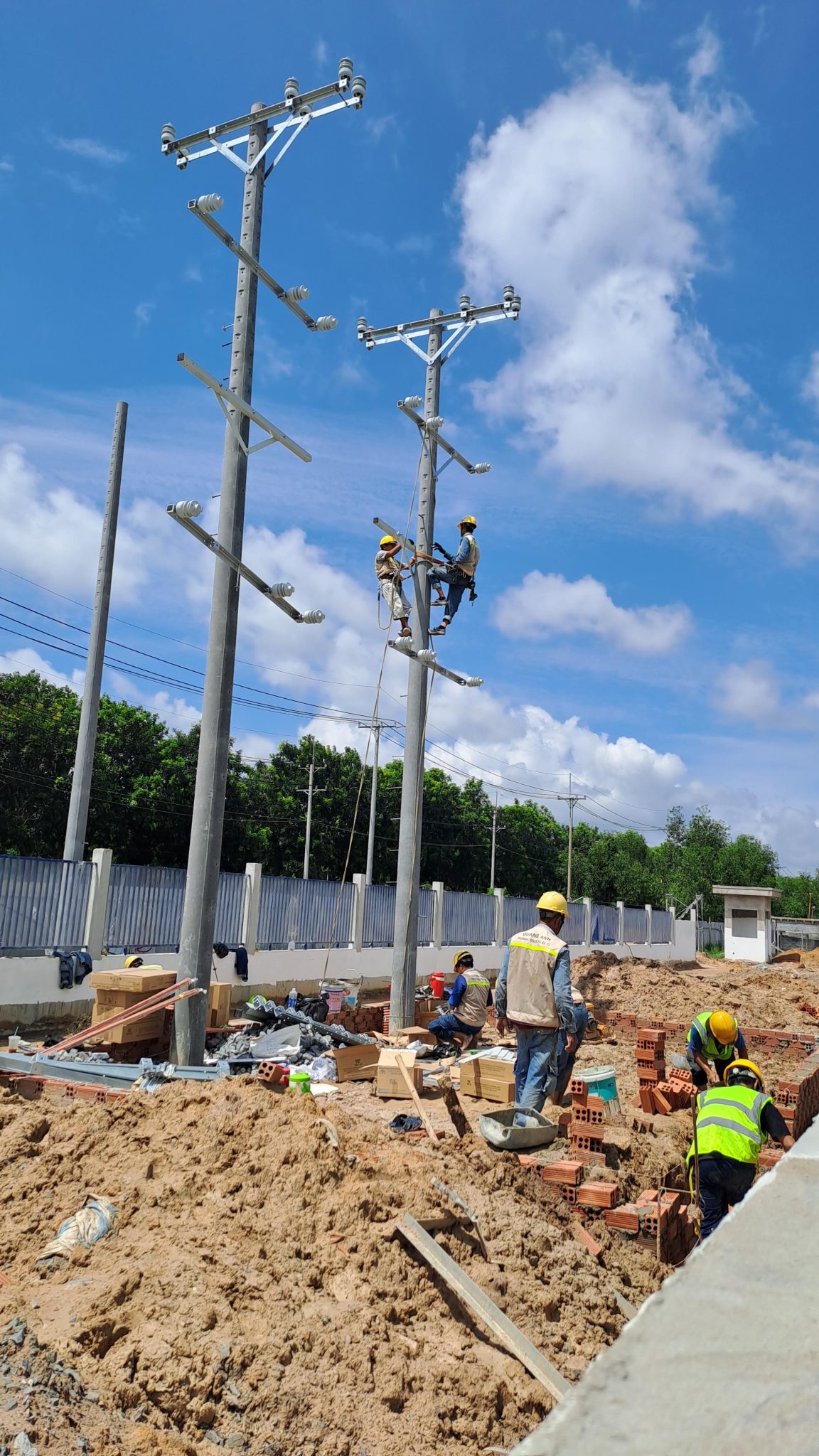
Electrical Safety and Fire Prevention Certification
The equipment and electrical systems of the charging station must comply with electrical safety regulations and possess a fire prevention certification to protect users and the infrastructure from potential fire hazards and technical faults.
To ensure safe operation of EV charging stations, obtaining both electrical safety and fire prevention certifications for the station is essential. This not only shields users but also ensures all legal safety requirements are met.
Electrical Safety Certification
-
Technical Requirements: The station must adhere to voltage, power connection standards, and include safety functions like overload and leakage protection. Charging equipment requires conformity certification to disconnect during electrical hazards or potential fire threats.
-
Legal Procedure: To guarantee stable power, an electricity supply contract must be signed with the utility company while adhering to electric management agency standards.
Fire Prevention Certification
-
PCCC Safety Standards: The PCCC system for the station requires fire alarms and automatic power cut-off during incidents, particularly crucial for installations in existing structures.
-
Legal Procedures: While independent charging station designs may not need PCCC design approval, integration into existing safety AC conditions does. Fire safety certification is mandatory for all charging stations.
Electrical and fire prevention certifications are not only legal mandates but also integral to ensuring maximum safety for users and equipment during station operation.
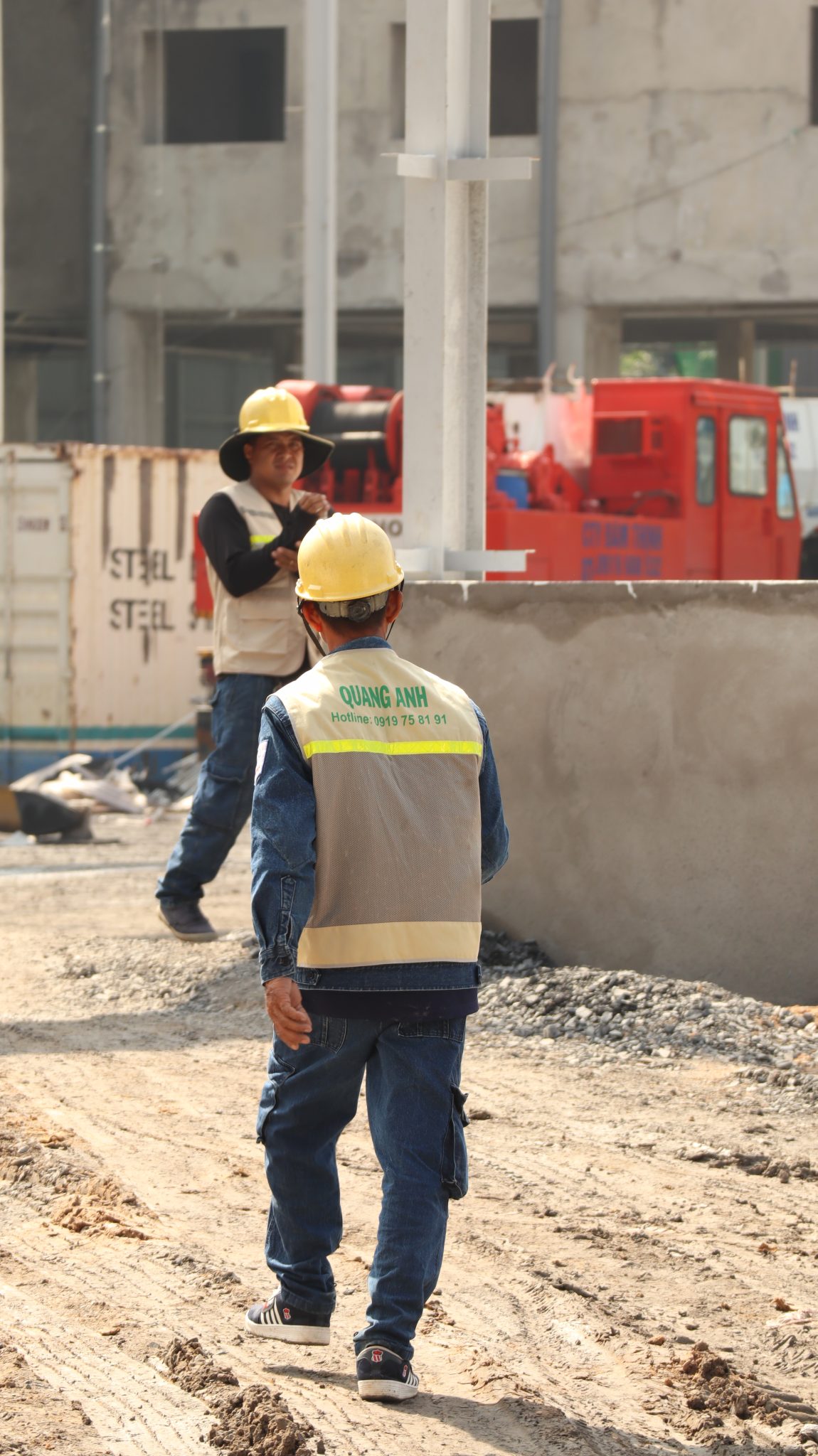
Adhering to the procedures for constructing EV charging stations in Vietnam not only ensures legality but also enhances technical efficacy and protects investments. From land permits, construction approval, electrical contracts to safety inspections and certifications, each step plays an essential role in developing sustainable and reliable infrastructure.
For expert assistance in building EV charging stations, contact QuangAnhCons via Hotline: +84 9 1975 8191 for professional and detailed consultation.
QuangAnhCons offers comprehensive services in EV charging station consultation and construction, assisting with all necessary legal procedures, permits, and compliance with technical safety standards.
[contact-form-7 id="7239967" title="Contact form 1"]

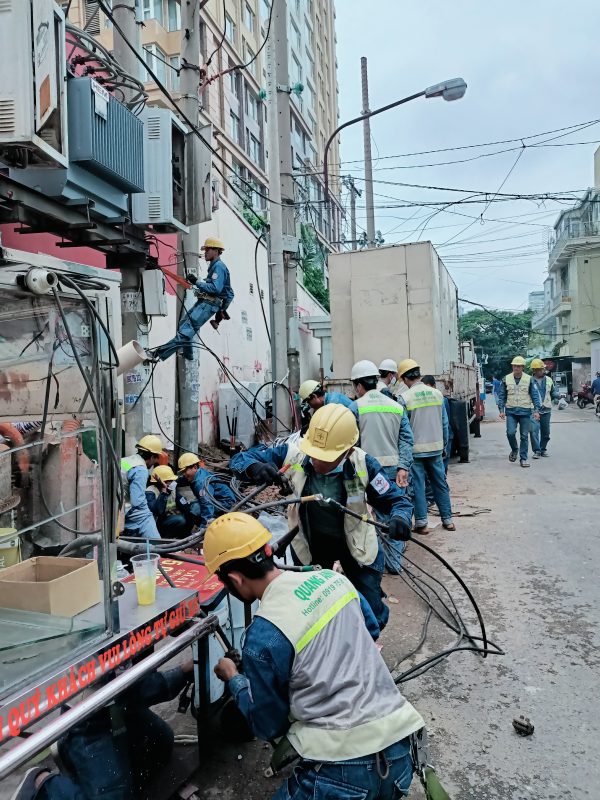
Related Posts
Tay Ninh Solar Power Planning: Technical Framework, Grid Interconnection, and Rollout Roadmap
Technical overview of solar planning in Tay Ninh: irradiation, grid capacity, permitting, design, operations, and [...]
Dec
Binh Duong Solar Planning: Regulatory Framework, Grid Interconnection, and an Implementation Roadmap for Factories and Industrial Parks
An overview of Binh Duong solar planning: legal framework, interconnection, design, risk management, and an [...]
Dec
Solar Farm Repair: O&M Workflow, IV Curve Diagnostics, Thermography, Inverter Service and Utility-Scale Safety
A utility-scale solar farm repair plan centered on O&M, IV curves, thermal imaging, inverter service, [...]
Dec
Dong Nai Solar Power Plan 2023–2025: Tri An 1,029 MW, Grid Upgrades and the DPPA Pathway
A complete look at Dong Nai’s solar power plan: Tri An 1,029 MW, irradiation potential, [...]
Nov
Quang Ngai Solar Power Plan 2024–2030: Legal Framework, Irradiance Potential, and Development Roadmap
A complete look at Quang Ngai’s solar power plan: capacity targets, irradiance (PVout), development zones, [...]
Nov
Solar Damage Assessment Services: On-Site Procedures, EL/IV/Thermography Testing & Compliance with Standards
Discover IEC/UL/NEC standard solar damage assessment processes: on-site evaluation, EL and IV curve testing, thermal [...]
Nov
Comprehensive Package Estimate for a 1800MVA 500kV Substation: Scope, Configuration 3x600MVA, Standards and Timeline Management
An overview of the 1800MVA 500kV substation estimate: construction scope, configuration 3x600MVA, GIS/AIS, SCADA, standards, [...]
Nov
Factory Electrical Systems: Comprehensive Design and Implementation Guide
Discover the detailed and safe process of factory electrical systems design and implementation. [...]
Oct
Blueprints Required for Factory Construction Permits
Discover the necessary blueprints in factory construction permit applications, from floor plans to electrical and [...]
Oct
What Are the Requirements for a Factory Construction Permit? A Comprehensive Guide
Explore the documentation and steps needed to secure a factory construction permit for streamlined project [...]
Oct
Factory Construction Permit Procedures in Vietnam: Essential Guidelines and Documents
Learn the procedures for securing a factory construction permit in Vietnam, focusing on document preparation [...]
Oct
Key Steps in the Factory Construction Process
Discover the essential steps and requirements for building factories. [...]
Oct
Comprehensive Electrical Substation Solutions by Quanganhcons
Discover the cutting-edge electrical substation solutions offered by Quanganhcons for industrial applications. [...]
Oct
Investment Costs for a 1MWp Solar Power System and Influencing Factors
Explore the investment costs for a 1MWp solar power system in Vietnam and the influencing [...]
Sep
QuangAnhcons: Elevating Wind Energy Solutions
Explore QuangAnhcons' leadership in wind energy and renewable solutions in Vietnam. [...]
Sep
Electrical Contractor Strategies at Becamex Industrial Park
Discover the strategic advancements and partnerships of the electrical contractor at Becamex Industrial Park. [...]
Sep
Investment Insights for 1MW Wind Energy in Vietnam: Costs and Opportunities
Discover the detailed analysis of costs and opportunities for investing in 1MW wind energy projects [...]
Sep
Advanced Electrical Installation Solutions by QuangAnhcons
Explore advanced electrical installation solutions and modern technology with QuangAnhcons. [...]
Sep
Enhancing Industrial Electrical Services with Quanganhcons
Discover Quanganhcons' expertise in industrial electrical services, offering efficient and sustainable power systems. [...]
Sep
Comprehensive MEP Solutions by QuangAnhcons: From Design to Maintenance Excellence
Discover optimal MEP solutions with QuangAnhcons, dedicated to excellence from design through maintenance. [...]
Sep